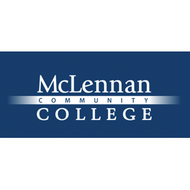
(View Complete Item Description)
MCC’s Title V grant project, First Year Focus: Developing Academic and Co-Curricular Student Support Structures to Improve First Year Outcomes puts into place innovative support structures designed to create enriching academic opportunities that foster success for MCC’s diverse student population. These activities include restructuring the first year experience to address student resilience, integrating and building academic support structures to promote persistence, and cultivating student engagement and inclusiveness across campus. The project is (1) restructuring the Learning Frameworks courses and curriculum to better address student resilience through cohort reorganization, the integration of cultural competency, career planning, and financial literacy into all Learning Frameworks (LF) courses, and bringing the College’s Peer Leadership Initiative (PLI) to scale as part of the LF course, (2) enhancing academic support structures by centralizing academic support into a cohesive Learning Commons, implementing SI for developmental education and gateway courses, and language support for ELL students, (3) better engaging students, including Hispanic and low-income students at the beginning of their academic careers, increasing Spanish language engagement from orientation to graduation, and compelling student programming for Hispanic and low- income MCC students.
DELIVERY FORMAT: The program has a hybrid format.
PROGRAM SCALE: Large-scale (reaches more than 25 percent of its intended target population)
APPROXIMATE PARTICIPANTS SERVED IN 2021-22: 3575
HOW TO ENROLL: All stakeholders have access to this program. As such, there is no enrollment process
EVALUATION STATUS: Data related to program outcomes are currently being internally and externally collected
DEPARTMENT(S) OVERSEEING PROGRAM: President's Office
CONTACT FOR MORE INFO: Paula Barfield Unger at punger@mclennan.edu or 254-299-8494
Material Type:
Student Success: Student-facing

















